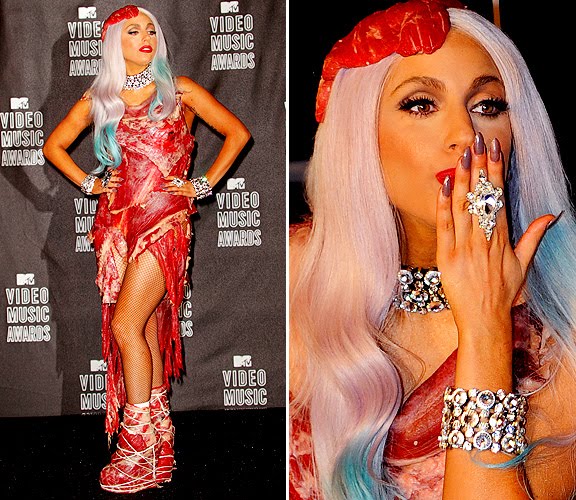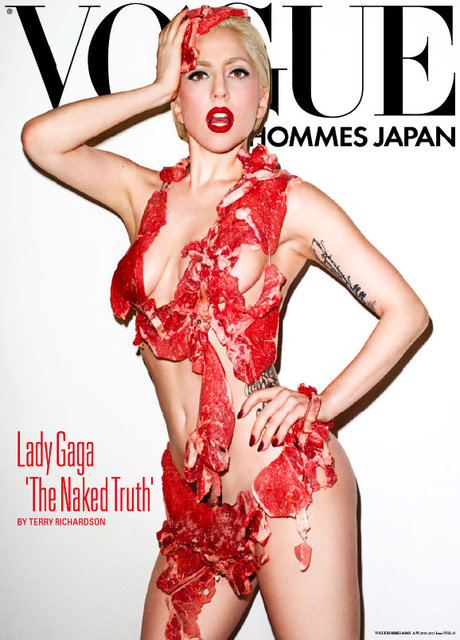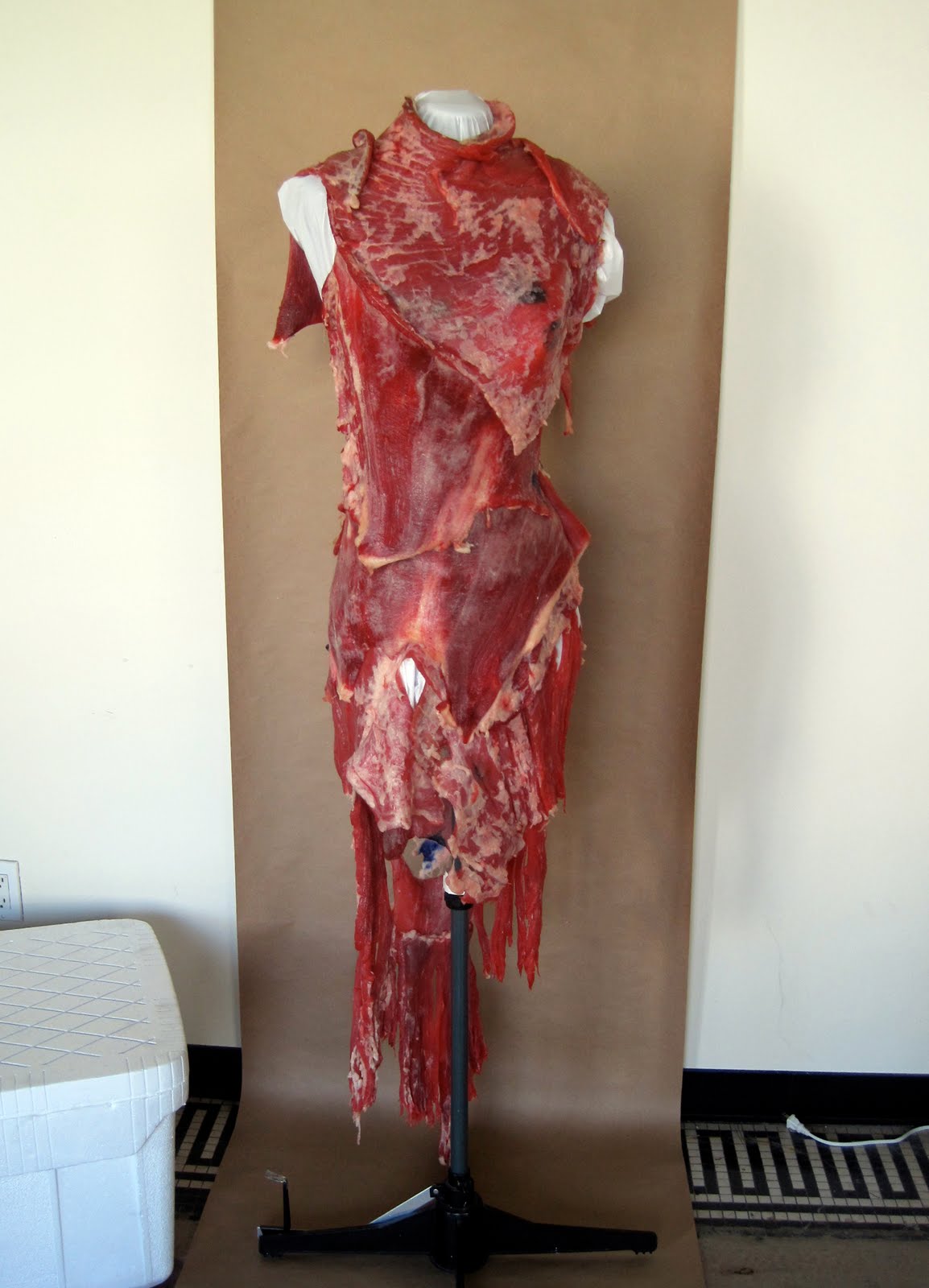
Image Credit: Lady Gaga at the VMAs, Designer Franc Fernandez
I realize that I may be a bit behind the times to be addressing (ha!) Lady Gaga's fashion stunt of last fall, but meat's been on my mind this week as I'm about to embark on 30 days of eating vegetarian - largely as a result of the text we're teaching in our introductory rhetoric classes here at UT: Colin Beavan's No Impact Man. But that's another story. Gaga's appearance at the Mtv Video Music Awards sparked controversy that dissipated rather quickly, and though this may have been due to the singer's own inability to adequately (or logically) explain the reasons behind her wardrobe choice, the images left behind offer a really interesting opportunity for varying and disparate interpretations.
While I was surprised (and a bit disappointed) to discover that Jezebel didn't have much to say about the dress, my immediate reaction was to think of the outfit as a commentary on female objectification. The dress literalizes an all too familiar trope - that women are just pieces of meat - and the contrast between the female body and the hunks of beef strewn about it seemingly negates the metaphor by calling attention to it. Yet considering Gaga's videos and her ethos in general, it could also easily be argued that the outfit does just the opposite (reenforcing the trope/idea/attitude instead of negating it), especially considering the precursor to the dress - her appearance on the cover of the Japanese Men's Vogue in a meat bikini. They say we are what we eat, perhaps we are what we wear, too?

Image Credit: Vogue Hommes Japan
Now, while Gaga argued that she meant no disrespect to vegetarians, that didn't prevent a backlash from animal right's activists and environmental groups. PETA was predictably outraged by her VMA outfit, though their response was surprisingly brief. Ecouterre.com, a website devoted to sustainable fashion, instead used the dress as a conversation point, exploring the environmental impact of designer Franc Fernandez's 50 lb. creation. I'm sure both organizations would disagree with me, and perhaps this is a bit of a stretch, but I can see how one might argue that the dress is in fact an argument for vegetarianism and animal rights.

Image Credit: Designer Franc Fernandez
For one thing, looking closely at the dress certainly doesn't make me want to run out and eat a steak. But it also opens up space for an argument through analogy - how is wearing leather any different from wearing pieces of beef? Vegetarians are often critical of those who abstain from meat but still wear animal products, and the dress seems to call attention to this complaint. It also calls into question what constitutes acceptable use - if we can eat it, why can't/shouldn't/don't we wear it? And vice versa? Would the fur trade somehow be more palatable if we ate all the animals we wore?
Gaga's dress wasn't the most appetizing wardrobe choice, but it certainly got some attention. Everyone should be please to note, however, that the dress won't be going to waist - according to People Magazine, the dress is slowly turning into beef jerky that will be preserved for posterity (not eaten).
(Apologies for the rampant puns in this post, but I simply couldn't resist).



Recent comments
2 years 29 weeks ago
2 years 44 weeks ago
2 years 44 weeks ago
2 years 50 weeks ago
3 years 4 weeks ago
3 years 4 weeks ago
3 years 4 weeks ago
3 years 6 weeks ago
3 years 6 weeks ago
3 years 6 weeks ago